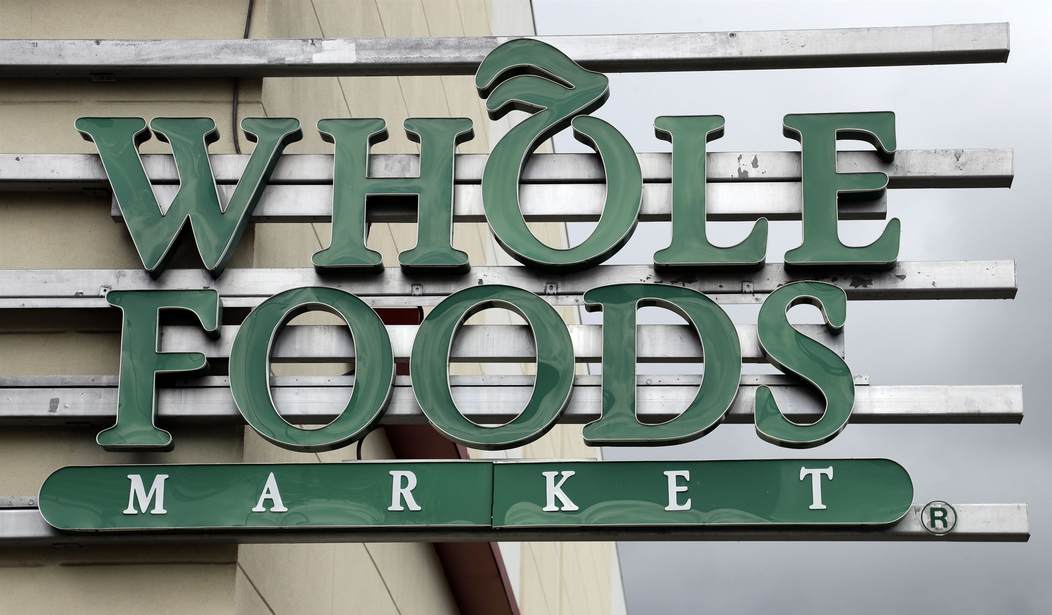Eighty-five percent of counties with a Whole Foods store voted for Joe Biden. That factoid, relayed by The Cook Political Report's David Wasserman, tells you something important about the election -- and about today's Democratic Party.
"The Democracy," as it was called in the 19th century, long thought of itself as the party of the people, the defender of the little guy, the side that stood up for the folks not able to stand up for themselves.
There was always something to this. From its formation to reelect Andrew Jackson in 1832, the Democratic Party has always been a coalition of groups not considered typical Americans but that together could form a national majority. Naturally, the precise composition of this coalition has changed over time.
Barack Obama's Democratic Party was a top-and-bottom coalition of those at both ends of the income, education and occupational scales. Obama, who, as an Illinois legislator, gerrymandered a top-and-bottom district for himself, provided substantive and psychological sustenance to both sides.
Joe Biden's Democratic Party has a different balance. The boy from working-class Scranton, as he is billed, ran best not in factory cities but in university towns.
His highest percentage in Michigan was in the county containing Ann Arbor, not Detroit. He ran stronger in Madison, Wisconsin's Dane County than in Milwaukee County; stronger in Iowa City than in Des Moines; stronger in Missoula, Montana, with its university than in Butte with its copper mines; just as strong in metro Columbus (Ohio State University) as in metro Cleveland.
Recommended
Biden's strongest area in California was the San Francisco Bay (University of California, Berkeley and Stanford University). His strongest county in upstate New York was Tompkins (Cornell University). His strongest counties in North Carolina were Durham and Orange (Duke University and the University of North Carolina, Chapel Hill).
White college grads -- Joel Kotkin's "gentry liberals," Arnold Kling's "highly educated elites" -- have become the dominant constituency in the Democratic Party. Even as the descendants of the party's blue-collar constituents have become Donald Trump Republicans, Democratic percentages among white college graduates have ballooned.
Pew Research Center polling showed white college graduates 50% to 42% Republican in 1994 -- the breakthrough year when Republicans captured the House after 40 years of Democratic control -- and 57% to 37% Democratic in 2019. That's happened even as they've become a larger percentage of the electorate.
To which an old-time Democratic Party boss -- Tammany Hall's Charles F. Murphy or Chicago's Richard J. Daley -- would have asked, "What do these people want?"
In the 1990s, the answers very fairly obvious. Affluent voters wanted tax rates held down, and they wanted their verdant suburban and trendy central city neighborhoods protected from violent crime and welfare dependency.
Led by Wisconsin's Tommy Thompson and New York's Rudy Giuliani, local Republicans and some Democrats cut violent crime and welfare rolls by more than half. In Washington, Newt Gingrich and Bill Clinton assisted and encouraged this process and largely froze tax rates.
Today's college graduates, more numerous than their 1994 predecessors and schooled on increasingly "politically correct" campuses, don't have such concrete goals. They're unfazed by marginal Obama-era tax increases and untroubled -- so far, anyway -- by the vertiginous increases in homicides after the May 25 incident in Minneapolis.
What they want out of politics is not so much anything concrete as it is symbolic: assertions of opposition to what they regard as America's "systemic racism," and opposition to assertions of "America first," whether that means enforcement of immigration laws or "xenophobic" restrictions on travel from China, where COVID-19 originated.
In Democratic primaries, these voters, as I wrote in June, "flitted from one candidate to the next, tilting toward Sen. Kamala Harris after she whacked Joe Biden for opposing busing in the 1970s, then luxuriating in Sen. Elizabeth Warren's stentorian assurances that, on every issue, 'I have a plan for that,' then swooning for the assured articulateness of then-South Bend Mayor Pete Buttigieg."
They seem chemically dependent on denunciations of Donald Trump, to the point that subscription- or ratings-hungry news media feel obliged to lard not just news accounts but even food pages and movie reviews with "Orange Man Bad" sneers. Trump is routinely described as a "racist" with no evidence cited.
White Democratic college graduates' central faith is that they oppose other Americans' systemic racism. Nearly a majority of them told pollsters they were bothered that Joe Biden is a white male in his 70s. Only about 30% of black and Hispanic Democrats feel the same, according to Pew. One group has more concern for ethnic origin and personal style than for real-life consequences for actual people.
White Democratic college graduates complain that Trump acts childishly; is impervious to criticism and fixated on symbolic trivia; and refuses to confess error or admit defeat. Fair criticism or self-description? Or both?
Michael Barone is a senior political analyst for the Washington Examiner, resident fellow at the American Enterprise Institute and longtime co-author of The Almanac of American Politics.

























Join the conversation as a VIP Member